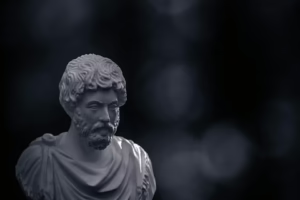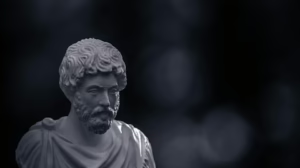From Plato to Postmodernism: A Journey Through Essential Philosophy Reads
Philosophy has been an enduring pursuit of truth, knowledge, and understanding since ancient times. The evolution of philosophical thought reveals changing perspectives on existence, reality, and morality throughout history. In this article, we will navigate significant works from ancient to contemporary philosophy, illustrating how these texts influence modern thought and shape our understanding of the world.
Introduction
The journey into philosophy begins with the ancient Greeks, who laid the groundwork for critical thinking and systematic inquiry. Plato, Aristotle, and other pre-Socratic thinkers set the stage for subsequent developments in metaphysics, ethics, and epistemology. As we traverse through the ages—from the Middle Ages to the Enlightenment, through existentialism and into postmodernism—we will highlight essential reads that have profoundly impacted the philosophical landscape.
Plato: The Foundations of Western Philosophy
The Republic
Plato’s “Republic” is arguably one of the most significant texts in philosophy. Written around 380 BCE, the dialogue explores the nature of justice, the ideal state, and the philosopher-king. Plato argues that a just society is governed by those who truly understand justice—philosophers.
Key themes in “The Republic” include the Theory of Forms, where Plato distinguishes between the ideal and the material world. His allegory of the cave serves as a powerful metaphor for human ignorance and the transformative journey of acquiring knowledge.
Symposium
In “Symposium,” Plato presents a series of speeches on love or Eros, revealing various perspectives on romantic and platonic love. This dialogue allows readers to reflect on the nature of desire, beauty, and the purpose of relationships. It highlights the tension between the physical and metaphysical aspects of love, making it a vital text for understanding human experience.
Aristotle: The Empirical Turn
Nicomachean Ethics
Aristotle, Plato’s student, shifted the focus from ideal forms to the empirical observation of the world. In “Nicomachean Ethics,” he presents the concept of virtue ethics, emphasizing the importance of achieving eudaimonia, or human flourishing, through virtuous living.
Aristotle’s virtue ethics contrasts sharply with Plato’s idealism, providing a pragmatic approach to ethics. He proposes that ethical behavior stems from the cultivation of virtues and the practice of moderation, creating a balanced life.
Metaphysics
In “Metaphysics,” Aristotle examines the nature of being, substance, and causality, laying the groundwork for future ontological debates. His exploration of the concepts of potentiality and actuality introduces readers to the complexity of existence and reality.
The Middle Ages: Faith and Reason
Augustine’s Confessions
As philosophy transitioned into the Middle Ages, the interplay between faith and reason became central. St. Augustine’s “Confessions” (late 4th century) offers a profound reflection on his journey from a life of hedonism to one of faith. Augustine’s work is notable for its introspective nature and his integration of Platonic thought with Christian doctrine.
His exploration of memory, time, and the nature of God deepens philosophical discourse, influencing both theology and existentialist thought.
Thomas Aquinas’s Summa Theologica
Thomas Aquinas’s “Summa Theologica” (13th century) synthesized Aristotelian philosophy with Christian theology. Aquinas argued for the coexistence of faith and reason, presenting five proofs for the existence of God that remain influential.
His work emphasized the importance of natural law and moral reasoning, laying the groundwork for subsequent ethical theories and the development of Western legal systems.
The Enlightenment: Reason and Individualism
René Descartes: Meditations on First Philosophy
The Enlightenment period marked a shift towards rationalism and individualism. René Descartes’ “Meditations on First Philosophy” (1641) is a seminal text that heralds modern philosophy. Descartes famously declared, “Cogito, ergo sum” (“I think, therefore I am”), emphasizing the importance of doubt and reason in the search for certainty.
In his meditations, Descartes explores the nature of existence, the mind-body dualism, and the reliability of human perception, setting the stage for modern epistemology.
Immanuel Kant: Critique of Pure Reason
Immanuel Kant’s “Critique of Pure Reason” (1781) represents a pivotal moment in philosophy, bridging empirical and rationalist traditions. Kant introduced the concept of transcendental idealism, arguing that our understanding of reality is shaped by both our sensory experiences and innate categories of thought.
Kant’s ideas on the nature of knowledge, experience, and the limits of human understanding revolutionized philosophical inquiry, influencing subsequent thinkers and movements.
Existentialism: The Search for Meaning
Søren Kierkegaard: Either/Or
As philosophy embraced existential themes, Søren Kierkegaard emerged as a key figure. His work “Either/Or” (1843) contrasts aesthetic and ethical ways of living, emphasizing the importance of choice and commitment in defining one’s existence.
Kierkegaard’s exploration of despair, faith, and the individual experience of God laid the groundwork for later existentialists and sparked discussions about the nature of authenticity.
Jean-Paul Sartre: Being and Nothingness
Jean-Paul Sartre’s “Being and Nothingness” (1943) is a cornerstone of existentialist philosophy. In this text, Sartre asserts that existence precedes essence, emphasizing freedom and the burden of choice. His exploration of concepts like “bad faith,” authenticity, and the nature of consciousness has deeply influenced contemporary discussions on identity, ethics, and human relationships.
Postmodernism: Challenging the Foundations
Michel Foucault: Discipline and Punish
The postmodern era is characterized by skepticism towards grand narratives and objective truths. Michel Foucault’s “Discipline and Punish” (1975) examines the relationship between power, knowledge, and social institutions. Foucault’s analysis of the historical development of the penal system highlights how power operates through societal norms and disciplines, fostering a critique of contemporary structures.
Foucault’s work encourages readers to question the conventional understanding of knowledge and challenge authoritarian discourses, making it essential for contemporary philosophical inquiry.
Jacques Derrida: Writing and Difference
Jacques Derrida’s writings, particularly “Writing and Difference” (1967), introduce deconstruction as a critical method that interrogates the structure of texts and the assumptions underlying language. Derrida’s analysis reveals how meaning is always deferred and contingent, destabilizing traditional interpretations of philosophy and literature.
His work prompts readers to consider the implications of language on thought and the limitations imposed by binary oppositions, encouraging a more nuanced understanding of reality.
Conclusion
The journey through essential philosophy reads encapsulates a vast array of thoughts, challenges, and ideas that have shaped human understanding. From the rational foundations laid by Plato and Aristotle to the introspective reflections of Augustine and the revolutionary inquiries of Descartes and Kant, philosophy has continually evolved.
Existentialism invites us to confront the complexities of human existence, while postmodernism challenges us to dissect the very frameworks that govern our understanding of truth and meaning. Together, these readings form a tapestry of intellectual heritage that encourages critical thinking, self-reflection, and an openness to evolving ideas.
As we move forward in a rapidly changing world, engaging with these philosophical texts remains essential for cultivating a deeper understanding of ourselves and the society we inhabit. By examining the evolution of philosophy from Plato to postmodernism, we gain valuable insights into the timeless questions that define the human experience.
References
- Plato. (n.d.). The Republic.
- Plato. (n.d.). Symposium.
- Aristotle. (n.d.). Nicomachean Ethics.
- Aristotle. (n.d.). Metaphysics.
- Augustine of Hippo. (n.d.). Confessions.
- Aquinas, T. (n.d.). Summa Theologica.
- Descartes, R. (1641). Meditations on First Philosophy.
- Kant, I. (1781). Critique of Pure Reason.
- Kierkegaard, S. (1843). Either/Or.
- Sartre, J.-P. (1943). Being and Nothingness.
- Foucault, M. (1975). Discipline and Punish.
- Derrida, J. (1967). Writing and Difference.
While this article offers a condensed overview of major philosophical texts, engaging deeply with each of these works can greatly enrich one’s appreciation for the complexity and beauty of philosophical thought.


























Add Comment